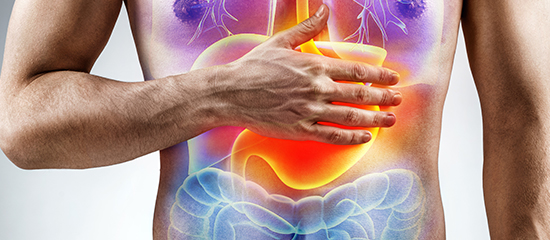cancer clinic
Cancer Immunity Clinic

01
Causes
It is known that heredity, chronic gastritis, gastrointestinal dysplasia (state in which cells of small intestine appear in the gastric mucosa), gastroenteroanastomosis, diet factors(nitrate, high salt food, burnt food, etc.), Helicobacter pylori infection, smoking, excessive exposure to radiation etc. affect to the development of gastric cancer.
- 01
Over-comsumption of
salted or smoked foods - 02
Drinking alcohol
- 03
History of chronic
gastropathy such as gastritis - 04
History of stomach surgery
- 05
Family history of gastric cancer
02
Symptoms
Early stage gastric cancer rarely has symptoms, and cancer with ulcers can cause signs of peptic ulcer, such as heartburn, hunger pain, etc. but those signs are well controlled with antacid. Gastric cancer has no specific symptom. As it develops further, however, it may has progressive systemic symptoms, such as poor appetite, weight loss, anemia, etc. with symptoms of discomfort in the upper abdomen, abdominal distention, pain, indigestion, etc. Also, it is not unusual that patients see doctors when they have symptoms of advanced stage, such as vomiting caused by pyloric obstruction, hematemesis or bloody excrement caused by internal bleeding, dysphagia caused by invading into cardiac region, abdominal mass palpation, hepatomegaly, intraperitoneal lymph nodes palpation.
It is known that heredity, chronic gastritis, gastrointestinal dysplasia (state in which cells of small intestine appear in the gastric mucosa), gastroenteroanastomosis, diet factors(nitrate, high salt food, burnt food, etc.), Helicobacter pylori infection, smoking, excessive exposure to radiation etc. affect to the development of gastric cancer.
03
Diagnostic Tests
| Type of Cancer | Examination Method | Advantages of Examinination | Disadvantages of Examination |
|---|---|---|---|
| Gastric cancer | Endoscopy | Accurate diagnosis, biopsy, and brief treatment are possible | Patients may feel sick and difficulty |
| Upper gastrointestinography | It is relatively easy to get. The entire shape of tumors can be seen. It is useful to plan for treatment. | It is less accurate. Biopsy is impossible. |
04
Treatments
The most common three treatment ways are surgery, anticancer therapy, and radiotherapy
Surgery is the only way of curing gastric cancer, so far. Anticancer therapy and radiotherapy relieve symptoms, slow the the progress of cancer, and sometimes prolong survival period.
Both anticancertherapy and radiotherapy can be used alone or in combination, and either can destroy cancer cells effectively. However, both therapies may destroy normal tissues and cause several side effects. For these reasons, anticancer therapy or radiotherapy normally accompanies side effects including feeling of fatigue, nausea, decrease of hemocyte number, hair loss.
Also, proper nutrition is necessary for the gastric cancer patients.

SurgerySurgery for gastric cancer called gastrectomy
includes total gastrectomy or partial gastrectomy.
Lymph nodes near stomach should be removed.
Anticancer therapyIt includes anticancer drugs took orally
or injected into veins.
RadiotherapyIt includes high-energy radiation
which can attack cancer cells.
05
Preventive Management



